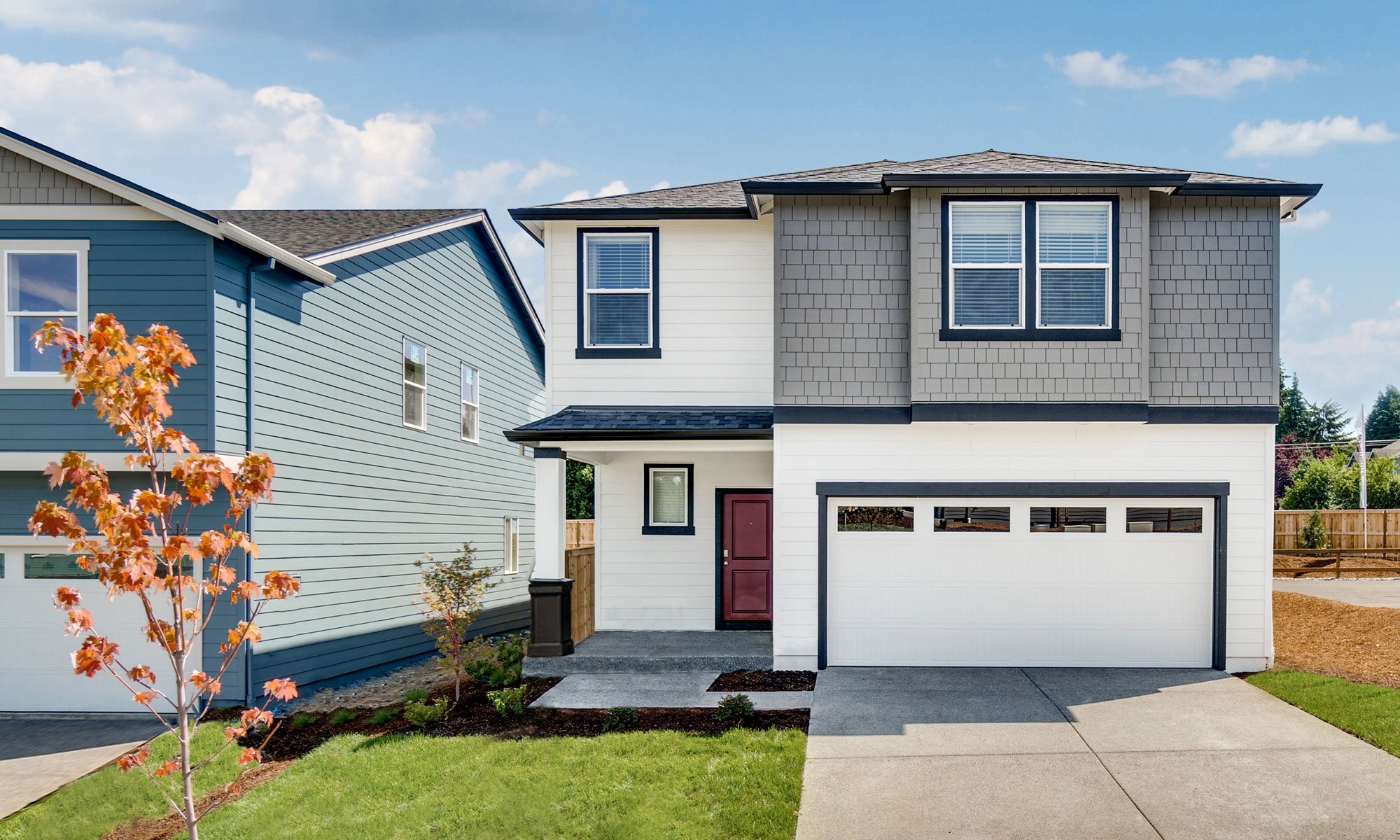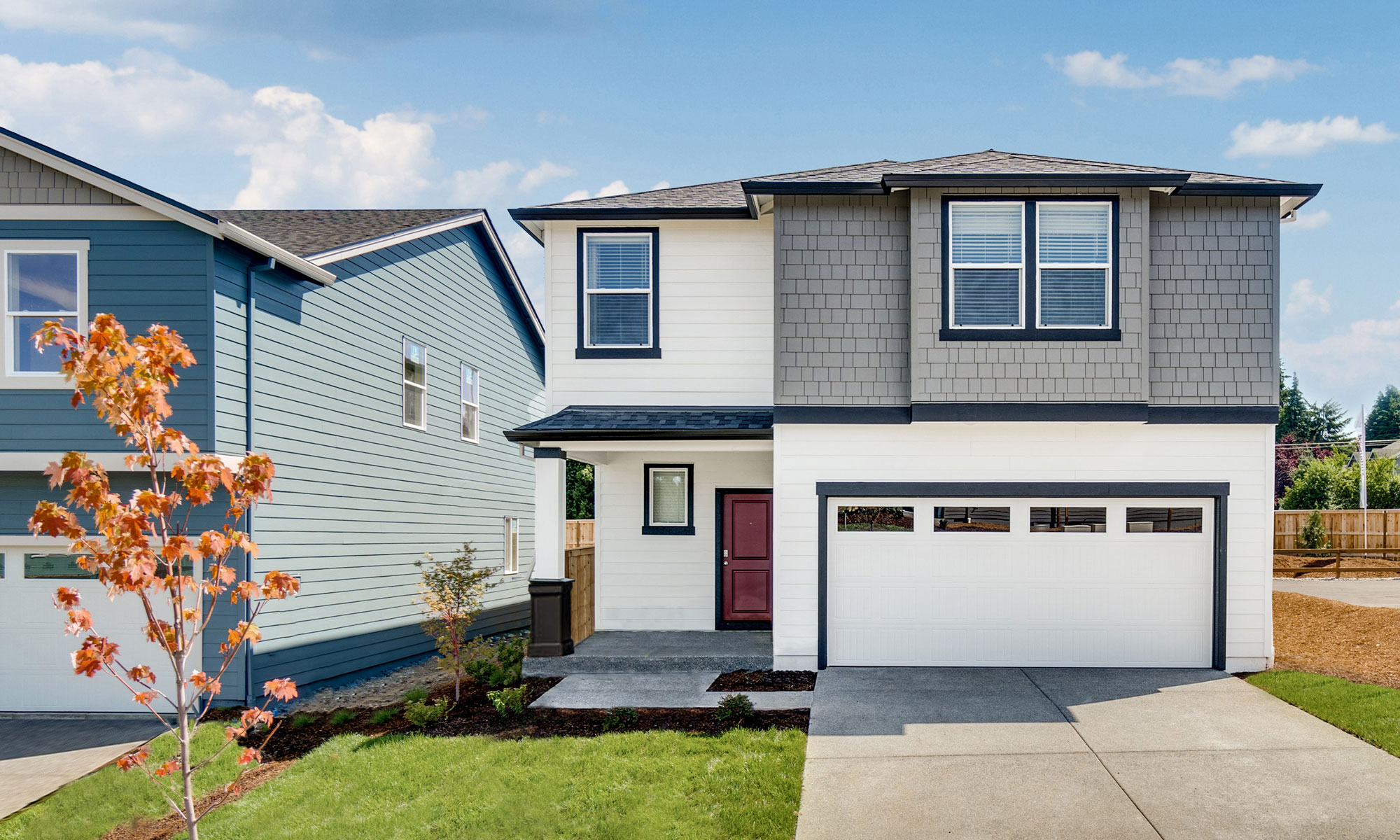D.R. Horton, Inc. (NYSE:DHI) Faces Downgrade Amid Strong Fundamentals

- D.R. Horton, Inc. (NYSE:DHI) was downgraded by RBC Capital to "Underperform" despite a price target increase to $117.
- The company's strong fundamentals, including a robust balance sheet and high profit margins, contrast with the market's negative sentiment.
- DHI's current stock price suggests potential mispricing, trading at just over 12 times its trough earnings.
D.R. Horton, Inc. (NYSE:DHI), a leading home construction company in the United States, is renowned for its diverse range of homes and significant market presence. Competing with giants like Lennar Corporation and PulteGroup, DHI recently faced a downgrade from RBC Capital to "Underperform" while maintaining a "hold" action, with a stock price around $149.
Despite the downgrade, RBC Capital raised the price target for DHI to $117, as reported by StreetInsider. This adjustment occurs amidst a stock selloff driven by concerns over mortgage rates and the housing market, overshadowing D.R. Horton's strong fundamentals, such as its robust balance sheet and high profit margins.
D.R. Horton's recent earnings highlight its resilience, suggesting the stock might be undervalued. The stock trades at just over 12 times its trough earnings, indicating potential mispricing, a situation echoed by Alexandria Real Estate Equities due to stock price-driven narratives.
Currently, DHI's stock price stands at $148.86, reflecting a 3.02% decrease or $4.64 drop. The stock has seen fluctuations between $148.39 and $153.735 throughout the day. Over the past year, DHI has reached a high of $199.85 and a low of $110.44, with a market capitalization of approximately $45.73 billion.
The trading volume for DHI on the NYSE is 3,702,644 shares. Despite the prevailing negative sentiment, D.R. Horton's operational flexibility and strong fundamentals underscore its status as a pivotal player in the housing market.
| Symbol | Price | %chg |
|---|---|---|
| 1928.T | 3307 | 0.79 |
| 1911.T | 1578 | 0.6 |
| 1808.T | 2548 | 1 |
| 3291.T | 2347 | -0.6 |

D.R. Horton Misses Earnings & Cuts 2025 Forecast, But Shares Rise 3%
D.R. Horton (NYSE:DHI) shares gained over 3% intra-day today despite the homebuilding giant reporting quarterly earnings that fell short of expectations and revising its full-year outlook lower.
For the second quarter, the company posted earnings of $2.58 per share, below the $2.67 analysts had forecast. Revenue came in stronger at $7.7 billion, exceeding expectations but marking a 15% year-over-year decline from $9.1 billion.
The slowdown in sales was attributed to hesitant buyer behavior amid affordability pressures and softening consumer sentiment. Net sales orders dropped 15% year-over-year to 22,437 homes, with a total value of $8.4 billion. Closings also declined by 15%, totaling 19,276 units for the quarter.
D.R. Horton also trimmed its full-year revenue guidance to between $33.3 billion and $34.8 billion, falling short of the $36.14 billion consensus, reflecting continued headwinds in the housing market as higher borrowing costs weigh on demand.

D.R. Horton Misses Earnings & Cuts 2025 Forecast, But Shares Rise 3%
D.R. Horton (NYSE:DHI) shares gained over 3% intra-day today despite the homebuilding giant reporting quarterly earnings that fell short of expectations and revising its full-year outlook lower.
For the second quarter, the company posted earnings of $2.58 per share, below the $2.67 analysts had forecast. Revenue came in stronger at $7.7 billion, exceeding expectations but marking a 15% year-over-year decline from $9.1 billion.
The slowdown in sales was attributed to hesitant buyer behavior amid affordability pressures and softening consumer sentiment. Net sales orders dropped 15% year-over-year to 22,437 homes, with a total value of $8.4 billion. Closings also declined by 15%, totaling 19,276 units for the quarter.
D.R. Horton also trimmed its full-year revenue guidance to between $33.3 billion and $34.8 billion, falling short of the $36.14 billion consensus, reflecting continued headwinds in the housing market as higher borrowing costs weigh on demand.

D.R. Horton, Inc. (NYSE:DHI) Faces Adjusted Analyst Expectations and Market Challenges
- The consensus price target for D.R. Horton, Inc. (NYSE:DHI) has been adjusted from $176.7 to $150, with a notably lower target set by J.P. Morgan at $82.5.
- D.R. Horton reported a net income of $2.58 per diluted share and a quarterly dividend of $0.40 per share for its fiscal 2025 second quarter.
- The company's stock price has seen a 4.6% increase in the last trading session but has declined by 13.7% since the last earnings report, indicating investor concerns over future performance.
D.R. Horton, Inc. (NYSE:DHI) is a leading homebuilding company in the United States, known for its extensive operations in land acquisition, development, and residential construction. The company operates under various brand names and offers services like mortgage financing and title insurance. D.R. Horton competes with other major homebuilders like Lennar Corporation and PulteGroup.
The consensus price target for D.R. Horton's stock has seen a significant shift over the past year. Initially, the average price target was $176.7, but it has now decreased to $150. This change indicates that analysts have adjusted their expectations, possibly due to evolving market conditions or company-specific factors. As highlighted by J.P. Morgan, analyst Michael Rehaul has set a notably lower price target of $82.5.
D.R. Horton recently announced its fiscal 2025 second-quarter earnings, reporting a net income of $2.58 per diluted share. The company also declared a quarterly dividend of $0.40 per share. Despite these earnings, analysts predict a decline in future earnings, suggesting that the company may not meet expectations in upcoming reports. This outlook could be influencing the downward revision of price targets.
The stock has experienced a 4.6% increase in its share price during the last trading session, with above-average trading volume. However, the trend in earnings estimate revisions does not suggest sustained strength. Since the last earnings report, D.R. Horton's stock price has declined by 13.7%, raising concerns among investors about its future performance.
Investors should consider these developments and the broader economic conditions when evaluating D.R. Horton's stock. The recent decline in stock price and the adjusted price targets reflect a cautious outlook from analysts, emphasizing the need for careful analysis of the company's financial health and market position.

D.R. Horton, Inc. (NYSE:DHI) Faces Adjusted Analyst Expectations and Market Challenges
- The consensus price target for D.R. Horton, Inc. (NYSE:DHI) has been adjusted from $176.7 to $150, with a notably lower target set by J.P. Morgan at $82.5.
- D.R. Horton reported a net income of $2.58 per diluted share and a quarterly dividend of $0.40 per share for its fiscal 2025 second quarter.
- The company's stock price has seen a 4.6% increase in the last trading session but has declined by 13.7% since the last earnings report, indicating investor concerns over future performance.
D.R. Horton, Inc. (NYSE:DHI) is a leading homebuilding company in the United States, known for its extensive operations in land acquisition, development, and residential construction. The company operates under various brand names and offers services like mortgage financing and title insurance. D.R. Horton competes with other major homebuilders like Lennar Corporation and PulteGroup.
The consensus price target for D.R. Horton's stock has seen a significant shift over the past year. Initially, the average price target was $176.7, but it has now decreased to $150. This change indicates that analysts have adjusted their expectations, possibly due to evolving market conditions or company-specific factors. As highlighted by J.P. Morgan, analyst Michael Rehaul has set a notably lower price target of $82.5.
D.R. Horton recently announced its fiscal 2025 second-quarter earnings, reporting a net income of $2.58 per diluted share. The company also declared a quarterly dividend of $0.40 per share. Despite these earnings, analysts predict a decline in future earnings, suggesting that the company may not meet expectations in upcoming reports. This outlook could be influencing the downward revision of price targets.
The stock has experienced a 4.6% increase in its share price during the last trading session, with above-average trading volume. However, the trend in earnings estimate revisions does not suggest sustained strength. Since the last earnings report, D.R. Horton's stock price has declined by 13.7%, raising concerns among investors about its future performance.
Investors should consider these developments and the broader economic conditions when evaluating D.R. Horton's stock. The recent decline in stock price and the adjusted price targets reflect a cautious outlook from analysts, emphasizing the need for careful analysis of the company's financial health and market position.

D.R. Horton Beats Q1 Earnings Estimates and Issues Strong 2025 Outlook
D.R. Horton Inc. (NYSE:DHI) released better-than-expected results for its fiscal first quarter of 2025. The home construction giant delivered solid performance despite a slight decline in revenue and net sales orders, showcasing resilience amid evolving market conditions.
The company reported earnings per share (EPS) of $2.61 for the quarter, surpassing Wall Street’s projection of $2.38. Revenue dipped 1% year-over-year to $7.61 billion but exceeded analysts' expectations of $7.12 billion.
Net sales orders totaled $6.65 billion, representing a 2% decline compared to the same period last year and falling short of the $6.97 billion estimate. However, the number of homes closed reached 19,059, outperforming the forecasted 17,802, despite marking a 1.5% drop year-over-year.
D.R. Horton’s backlog, a measure of future revenue potential, fell 21% year-over-year to $4.30 billion, coming in below the $5.03 billion consensus. Despite this, the company emphasized strong housing demand supported by favorable demographic trends and limited availability of homes at affordable price points.
Looking ahead to fiscal 2025, the company anticipates generating revenue between $36 billion and $37.5 billion, aligning with market expectations. D.R. Horton also projects closing 90,000 to 92,000 homes and increasing consolidated cash flow from operations compared to fiscal 2024. Additionally, the homebuilder plans to return approximately $500 million to shareholders through dividends.

D.R. Horton Beats Q1 Earnings Estimates and Issues Strong 2025 Outlook
D.R. Horton Inc. (NYSE:DHI) released better-than-expected results for its fiscal first quarter of 2025. The home construction giant delivered solid performance despite a slight decline in revenue and net sales orders, showcasing resilience amid evolving market conditions.
The company reported earnings per share (EPS) of $2.61 for the quarter, surpassing Wall Street’s projection of $2.38. Revenue dipped 1% year-over-year to $7.61 billion but exceeded analysts' expectations of $7.12 billion.
Net sales orders totaled $6.65 billion, representing a 2% decline compared to the same period last year and falling short of the $6.97 billion estimate. However, the number of homes closed reached 19,059, outperforming the forecasted 17,802, despite marking a 1.5% drop year-over-year.
D.R. Horton’s backlog, a measure of future revenue potential, fell 21% year-over-year to $4.30 billion, coming in below the $5.03 billion consensus. Despite this, the company emphasized strong housing demand supported by favorable demographic trends and limited availability of homes at affordable price points.
Looking ahead to fiscal 2025, the company anticipates generating revenue between $36 billion and $37.5 billion, aligning with market expectations. D.R. Horton also projects closing 90,000 to 92,000 homes and increasing consolidated cash flow from operations compared to fiscal 2024. Additionally, the homebuilder plans to return approximately $500 million to shareholders through dividends.







